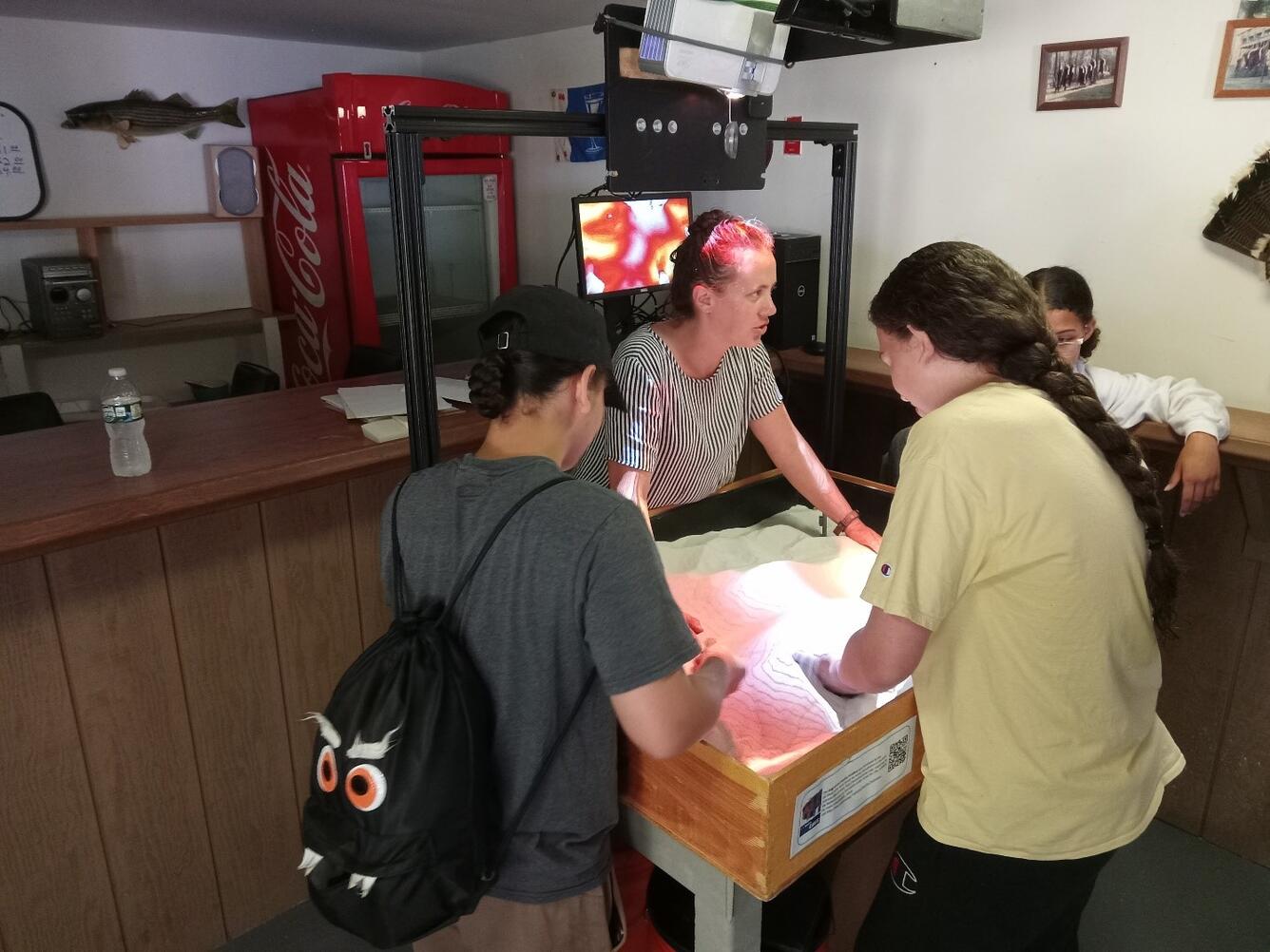Mashpee Wampanoag Preserving Our Homeland Summer Science Camp
A USGS Recap of the 2023 Season
USGS scientists participate in the Mashpee Wampanoag Tribe Preserving Our Homeland summer science camp annually. The camp teaches Mashpee students about Cape Cod land and seascapes through the lenses of tribal knowledge, history, and Western science.
Since 2012, the Mashpee Wampanoag Tribe, in collaboration with the USGS and other federal, state, and local science agencies, has organized an annual summer science camp. It runs two to three days per week for a month. By pairing Mashpee elders with scientists, the camp combines traditional Mashpee knowledge with Western science to teach the Mashpee students about the lands and waters in southern Cape Cod, Massachusetts.
Camp Activities with USGS and Beyond
In 2023, the USGS hosted a series of stations where student groups of four rotated and learned about glacial geology and the geologic history of Cape Cod, methane production in salt marshes, and coastal change due to sea-level rise, storms, and beach erosion. The camp participants spent 10 to 15 minutes at each station participating in hands-on activities and engaging scientists in guided discussions. The USGS team hosting these stations included Kate Ackerman, Rachel Allen, Sebastian Alvarez (summer intern from California State University Channel Islands), Wayne Baldwin, Laura Brothers, Meagan Eagle, Adrian Garcia, Ben Gutierrez, and Jin-Si Over.
The USGS’ Jason Sorenson and Cathy Chamberlin also contributed to the camp by collaborating with the Environmental Protection Agency (EPA) to teach students about coastal watersheds and water quality. Students had the opportunity to use field equipment to take measurements of typical air and water quality metrics. The students also learned about topographic maps using an augmented reality sand box.
Throughout the duration of the camp, students participated in workshops with several other science organizations on Cape Cod such as the Woods Hole Oceanographic Institution, Waquoit Bay National Estuarine Research Reserve, EPA, U.S. Department of Agriculture, and others.
In addition to learning about Cape Cod lands and waters, the camp also strives to expose students to traditional Mashpee foods, particularly those that come from Mashpee waterways, and involve contributions from elders in the community. This year, students got to enjoy foods created by Sherry Pocknett, who was a recently awarded Best Chef Northeast by the James Beard Foundation. Sherry, along with several other Mashpee elders, has provided food for the camp for several years.
The camp concluded with a visit to the University of New Hampshire and a camping trip.
More About the Mashpee Wampanoag Tribe Preserving Our Homeland Summer Science Camp
The science camp was orchestrated by Dale Oakley and Jason Steiding of the Mashpee Wampanoag Natural Resources Department. Former camp participants who are in their late high school years serve as camp counselors and share their experiences with the younger Mashpee students. The long-term vision of the camp is to cultivate experiences with scientists and Mashpee Wampanoag elders to expose students to the Cape Cod and Mashpee land and seascapes through the lenses of tribal knowledge, history, and Western science. These efforts provide a way for the Mashpee Wampanoag Tribe to cultivate the next generation of Mashpee leaders.



